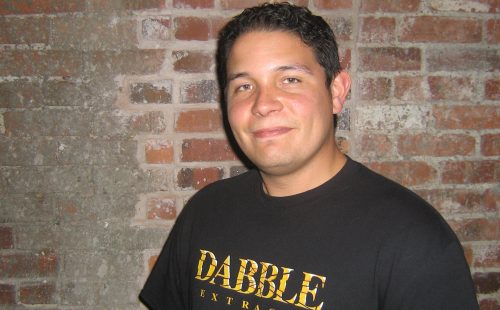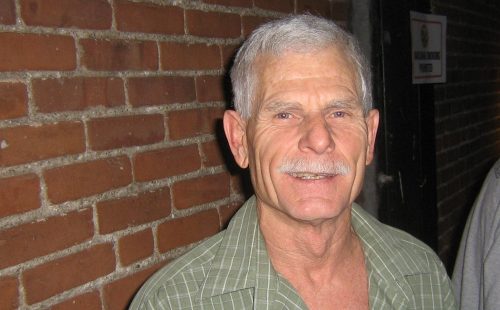Pot lovers have something extra to celebrate on this year’s Weed Day: the federal government’s legislation to decriminalize recreational marijuana introduced last week.The annual April 20 cannabis culture celebrations have grown in significance this year with Ottawa’s Cannabis Act, highlighting a path to legalize recreational marijuana use by Canada Day next year, with distribution and sale laws varying from province to province.The government introduced a series of bills, including one to strengthen impaired driving regulations.Story continues belowUntil anticipated laws are in place, however, it remains a criminal offence for an individual to possess any amount of marijuana.READ MORE: The highs and lows of pot legalizationWhile the federal government says current marijuana laws will be enforced until new laws are passed, marijuana activist Eric Shepard says he hopes the police take a relaxed approach to enforcement during a Thursday afternoon rally at Victoria Park.“There is a change in the air. I believe the London Police Service recognize that their strategy was ineffective and unnecessary so hopefully, now we will be able to have a more reasoned event,” said Shepard.In the meantime, it’s unclear how marijuana-related charges laid against smokers and pot shop owners before Ontario courts will be dealt with.Several pot dispensaries in London have reopened, after police raids in early March led to drug-related charges for up to 10 people. It remains illegal for medicinal pot smokers to purchase marijuana from non-government-licensed producers.READ MORE: Canadians trust pot producers less than banks, realtors and fast food companies: reportShepard is using Thursday’s gathering to address what he calls flaws within the legislation.“We do need to dampen that celebration by recognizing that these regulations are not perfect – they’re far from perfect in fact. This is an opportunity for us to unpack that legislation,” said Shepard. “I, for one, hope this is a gateway to a larger conversation around drug use because we all use drugs. From caffeine to alcohol to cannabis – they’re all drugs so we need to think about these things intelligently.”The proposed legislation would allow adults 18 and over to possess up to 30 grams of marijuana and grow up to four plants per residence for personal use.Hundreds of activists are expected to flock to Victoria Park Thursday afternoon to kick-start a day of smoking marijuana, with an emphasis on communal smoking – around 4:20 p.m.
Oh Canada
Canadians approve of Liberals’ marijuana legalization, but with some reservations, poll suggests
A new poll suggests a majority of Canadians approve of the Liberals’ plan to legalize marijuana but have mixed views about some provisions, as well as doubts that it will succeed in cutting organized crime out of the trade and keeping marijuana out of the hands of underage users.
The survey, conducted by the Angus Reid Institute (ARI) shortly after the government tabled its marijuana legalization legislation last week, found that 63 per cent of respondents were strongly or moderately in favour of the Liberals’ plan. Just 37 per cent were opposed.
A majority of Canadians of every age were in favour of the legislation, though support was strongest among those 18 to 34 years old (72 per cent).
The poll also found that 58 per cent of Canadians polled thought that marijuana legalization would do more good than harm, whereas 42 per cent felt that it would do more harm than good.
But on some of the specific provisions in the legislation, ARI found that Canadians’ views were less clearcut.
Though 45 per cent of Canadians felt the limit of 30 grams for personal possession was “about right,” 26 per cent felt that it was too much and another 22 per cent felt that no amount should be legalized.
Just seven per cent thought that the personal limit should be higher.
The split was similar on allowing Canadians to grow four marijuana plants within their own homes: 43 per cent thought the limit was about right, 11 per cent thought it was too low, 18 per cent thought it was too high and 29 per cent believed that Canadians should not be able to grow marijuana in their own homes at all.
Taken together, the results suggest that some 52 to 54 per cent of Canadians agree with the Liberals’ proposal or feel the laws should be even more permissive, while 47 to 48 per cent express some reservations with the plan when the details are laid out.
Pot at 18 too young
This discomfort was especially high concerning the legal age for buying marijuana, which the federal government will set at 18 (provinces will be free to set it higher). Fully 58 per cent thought that the legal age should be higher than 18, while 42 per cent felt that the government was on the right track.
Even among supporters of the government’s legislation, more than two-in-five disagreed with setting the legal age at 18.
This echoes a recent Ipsos poll conducted for Global News before the legislation was tabled. It found that 49 per cent of Canadians thought 21 was the right legal age for buying marijuana. Just 23 per cent thought 18 was the right age. Another 23 per cent chose an age between 18 and 21, while five per cent felt the age should be set at 16 or 17.
Doubts that preventive measures will work
The Liberals have presented their plan to legalize marijuana as one that will help keep pot away from kids and the marijuana trade out of the hands of organized crime. According to the ARI poll, Canadians have doubts that will happen.
Fully two-thirds of respondents believed that measures to discourage marijuana use would fail to prevent underage users from consuming even more marijuana when it is legalized. A slim majority, or 55 per cent, believed that organized crime would still find a way to profit from the trade.
But some concerns raised about increased use of marijuana seem misplaced. The Ipsos poll found that just 26 per cent of Canadians said they would be more likely to use marijuana after its legalization — and these were primarily people who were already habitual users.
Among those who have never smoked pot, just 6 per cent said that legalization would make them more likely to give it a try.
The poll by the Angus Reid Institute was conducted between April 17 and 19, 2017, interviewing 1,467 Canadian adults who were members of an online panel. A probabilistic sample of this size would yield a margin of error of +/- 2.5 percentage points, 19 times out of 20.
The poll by Ipsos was conducted for Global News between April 10 and 11, 2017, interviewing 1,004 Canadian adults who were members of an online panel. A probabilistic sample of this size would yield a margin of error of +/- 3.1 percentage points, 19 times out of 20.
Cannabist Show 4/20 Special: Charitable cannabis companies and the quest for clean cultivation
Welcome to Season 3 of the Cannabist Show. Featured guests: Bloom Farms founder Mike Ray and Ben Gelt of the Organic Cannabis Association.
LOTS TO TALK ABOUT
• Tax laws don’t allow many marijuana companies to write off charitable donations, motivating the industry to donate regardless.
• Making sure that your industry association encourages best practices and giving back.
• Recruiting people looking for passion over profits, finding the right fit.
• Potential issues with lab testing commercial cannabis.
• Creating standards for cultivation.
TOP MARIJUANA NEWS
Brands want to cash in with 4/20 munchies jokes. Marijuana advocates say it’s time to grow up: When you and your buds get the munchies on April 20, the high holiday for marijuana users, a small army of marketing professionals are working to ensure that in your haze, you’ll reach for their brand of blazed, er, glazed doughnuts. Or Totino’s Pizza Rolls. Or Burger King. Or any other brand of junk food – even from a wholesome, family-friendly company – that suspects its biggest fans may be spending the day more flame-broiled than a Whopper. 4/20, as the holiday is known, is when brands want you to get baked (goods). They want you to have a huge (ice cream) bowl or a (burrito) roll. In other words, it’s the day when corporate-sanctioned pot puns fly high on Twitter. –Report by The Washington Post’s Maura Judkis
Colorado marijuana DUIs down 33 percent from first three months of last year: The number of citations for driving while under the influence of marijuana dropped by 33.2 percent in the first quarter of 2017 compared with the same period last year, but the number of people using marijuana and then driving continues to be a concern for Colorado officials. “We’re still troubled by fact that marijuana users are still telling us they routinely drive high,” Colorado Department of Transportation spokesman Sam Cole said Monday. “We’re pleased with the awareness, but we’re not so pleased with the behaviors that are actually happening.” –Report by The Denver Post’s Hayley Sanchez
QUICK HIT
 Rep. Jared Polis (D-CO) joins veterans, servicemembers and aspiring recruits to call on Congress and President Barack Obama to move forward with immigration reform at the U.S. Capitol November 12, 2014 in Washington, D.C. (Chip Somodevilla, Getty Images)
Rep. Jared Polis (D-CO) joins veterans, servicemembers and aspiring recruits to call on Congress and President Barack Obama to move forward with immigration reform at the U.S. Capitol November 12, 2014 in Washington, D.C. (Chip Somodevilla, Getty Images)
“The DEA has lost its moral authority”: U.S. Rep. Jared Polis in exclusive 4/20-week interview: In his eight years on Capitol Hill, Colorado congressman Jared Polis has doggedly championed cannabis legalization. Polis pulled no punches in an exclusive marijuana-focused interview with The Cannabist in Denver just days before 4/20. Here’s what he wants to tell Attorney General Jeff Sessions: “I would point out the imperative — for Colorado but also states where over 60 percent of the American people live — that they get with the times, look at the data and allow the states the room to come out with the right way to regulate marijuana,” he said. “And that’s not where he is today, but the more he hears it, the more people he hears it from, the better, and he needs to catch up from the age of Reefer Madness to the 21st Century.” –Interview by The Cannabist’s Alicia Wallace
POT QUIZ
Test your current-events knowledge about the “Martha Stewart” of edibles, a midwestern state legalizing possession of CBD, a new poll with some surprising numbers and more.
Snapshots of the cannabis industry as we approach this year’s 4/20 celebrations
As cannabis legalization becomes more entrenched in Colorado and across the West, April remains a critical and special time for those involved with cannabis businesses.
Industry events are a prime place to see what’s new in cannabis products and entrepreneurial ideas, which were showcased at The Cannabist’s private 4/20 Week Launch Party on Friday afternoon in downtown Denver and Sensi Magazine‘s 4/20 Kickoff Party later that evening.
Both happenings had plenty of industry insiders and numerous networking opportunities.
The Cannabist took some time Friday to shout with some of the vendors taking part in the Sensi festivities – from lawyers to extracts makers to execs in ancillary businesses – and got their opinion on where the legal cannabis industry is going:
 Joshua Hindi, owner of Colorado concentrates business Dabble Extracts. (Bruce Kennedy, The Cannabist)
Joshua Hindi, owner of Colorado concentrates business Dabble Extracts. (Bruce Kennedy, The Cannabist)
Joshua Hindi – owner of Dabble Extracts, Colorado Springs
What do you think is the current state of the cannabis industry?
We’re definitely having our challenges but I’ve been a part of this industry for last 10 to 12 years and it’s definitely growing, and we’ve already had challenges in front of us previously. To have originally have been started by a group of radical hippies that wanted to see a medicine gifted, to turn into a corporate industry, has been a huge development process and a challenge overall to deal with. There’s always worries; there’s always the possibility of something negative happening. But for the most part … I think we’ve already started a movement.
A year from now, at the next 4/20 celebrations, where do you expect things will be?
I definitely think we’ll have progressed in a huge standpoint. We’ve developed ‘rec’, we’ll have more states coming online, it’s going to be a very interesting thing to see.
What brought you here?
This is an awesome chance to connect with the end consumer. … A lot of people are asking us questions: about cannabis and what exactly it does and what we do.
 Marijuana attorneys Elizabeth Thomas and Christine Salamon of the Maceau law firm. (Bruce Kennedy, The Cannabist)
Marijuana attorneys Elizabeth Thomas and Christine Salamon of the Maceau law firm. (Bruce Kennedy, The Cannabist)
Elizabeth Thomas and Christine Salamon – Attorneys with Maceau Law, Colorado Springs
What do you think about the current state of the cannabis industry?
Thomas – Just seeing how it’s growing and exploding, it’s obviously a business. … We always want to help out small businesses to large businesses, and it was just the right path to go. So we’re still kind of expanding in it.
Salamon – It now involves even family law cases. It used to be you had a parent who was smoking marijuana that would be the justification for taking away their children, and that no longer is the issue – or is it? With those cases they’re trying to figure that out, now that it’s become legalized.
What brought you here?
Thomas – We’re here to get our name out there, but also to network and talk to people, if they need representation. I’ve learned a lot tonight, just talking to people. We do do cannabis law; we’re a full-service firm. So we do everything from helping out with corporate stuff down to the users. So anything that would have to do with the business, whether you’re a distributor or someone that got pulled over. We do represent several grow houses throughout the state.
A year from now, at the next 4/20 celebrations, where do you expect things will be?
Thomas – I think legally in Colorado there may be some more definition. I’m hoping that things will be more clear-cut and not changing non-stop, that people will have a better idea. But again, who knows? Because every time I say that, I turn around and something’s changed.
Salamon – It’s a catch-up moment because the laws are behind, and not really recognizing all the different areas that it impacts once it’s legalized. And so everybody’s playing catch-up; trying to figure out how to make it work.
 Alex LeMaster, representative for Vapor Slide. (Bruce Kennedy, The Cannabist)
Alex LeMaster, representative for Vapor Slide. (Bruce Kennedy, The Cannabist)
Alex LeMaster – maker of dugouts and glass smoking pieces, working at the Sensi event for Vapor Slide
What do you think about the current state of the cannabis industry?
I think it’s great, I think it’s accelerating. I think more states are open to the industry being allowed and available to people. I think the biggest thing is that it’s (becoming) decriminalized. I don’t think people should be jailed for a plant, and the more information and knowledge that’s out there will increase that availability and this is the exact way to do it.
What brought you here?
I think the biggest thing is to increase knowledge for the product, and about decriminalization (efforts) of the product. And I think events like this do exactly that. They invite the public to really experience all the different products, all the different innovations that are going into this industry, and meet the people who are in it, and realize that we’re not just a bunch of stoner losers; we’re actually working really hard, moving the industry forward.
A year from now, at the next 4/20 celebrations, where do you expect things will be?
Hopefully there will be more 4/20 gatherings in more states and more open consumption, and more availability to learn about the product.
 John Garrison, co-owner of edibles business Mountain High Suckers. (Bruce Kennedy, The Cannabist)
John Garrison, co-owner of edibles business Mountain High Suckers. (Bruce Kennedy, The Cannabist)
John Garrison – one of the owners of Mountain High Suckers, Denver
What do you think about the current state of the cannabis industry?
I’m very optimistic. I think with all the problems that they’re having politically right now, I don’t think they have the time to chase the cannabis consumers that are doing it the right way.
A year from now, at the next 4/20 celebrations, where do you expect things will be?
You know, that’s a very tough question right now. I think that they’re going to be trying to deal with this CBD cannabinoid itself and try to regulate that, more than anything else it seems like in Colorado right now. Nationwide, I think it’s going to keep growing.
 Tod Bergler, sales and account manager for ancillary cannabis business Compliant Packaging. (Bruce Kennedy, The Cannabist)
Tod Bergler, sales and account manager for ancillary cannabis business Compliant Packaging. (Bruce Kennedy, The Cannabist)
Tod Bergler – sales and account manager for Compliant Packaging, Commerce City
What do you think about the current state of the cannabis industry?
Honestly I think the state of the industry is really strong right now. I’m not going to listen to anybody that says anything about Washington (politics) or anything; I don’t think there’s anything they can do about it. And in the last year I’ve seen a lot more of actual professionalism in our industry, which is something that has been lacking for a very long time.
What I mean by professionalism is somebody that communicates in a timely fashion; that understands what your services are, is willing to work with you and alongside you to help grow your business and theirs.
A year from now, at the next 4/20 celebrations, where do you expect things will be?
I expect the industry by next year to have grown by at least a third. We’re going to see a lot more people coming online with much finer quality products. I’ve seen quite a few companies in the last six months come online with edible products, teas, infused honeys, infused creamers. I mean, the state of the industry and the science that we’re getting to right now is unprecedented, and it’s doing nothing but accelerating at a fever pitch right now.
 Marie Peel, chief green officer of High End Transportation. (Bruce Kennedy, The Cannabist)
Marie Peel, chief green officer of High End Transportation. (Bruce Kennedy, The Cannabist)
Marie Peel – chief green officer for High End Transportation, Aurora
What brought you here?
Coming to an event like Sensi night or anything close to it is great, because you see all the business. Not just growing but ancillary businesses. And you get to see the other side of education and consuming, so I really love it.
What do you think about the current state of the cannabis industry?
We’re transportation, so we hear everything. We hear the growers’ problems, the trimmers’ problems, just the businesses’ problems. And I think that it’s evolving. I think a lot of professionals are coming back in here, and they’re bringing their talents to the community. And it’s making the cannabis community more reputable; definitely taking away the taboo of just being a stoner.
A year from now, at the next 4/20 celebrations, where do you expect things will be?
My concern is that there are going to be lot of people coming out here just not with integrity and dignity, representing the cannabis community just for money. So I really hope that the community stays strong with people who are really trying to push the agenda of education and safe consumption, instead of just trying to get money.
 Vendors work in booths at the Sensi Magazine party at event venue City Hall in Denver on Friday, April 14, 2017. (Bruce Kennedy, The Cannabist)
Vendors work in booths at the Sensi Magazine party at event venue City Hall in Denver on Friday, April 14, 2017. (Bruce Kennedy, The Cannabist)
Police chief says marijuana laws difficult and expensive to enforce
The Denver Post opinion pages solicited commentary from various marijuana policy and industry leaders, as well as the public, for a special cannabis-themed edition of the Sunday Perspective section the weekend before 4/20. The Cannabist is presenting these op-eds throughout the week.
While serving on Gov. John Hickenlooper’s task force to implement Amendment 64, I quickly learned that we were changing more than our laws, we were engaged in a huge paradigm shift which was the creation of what would be a new marijuana culture. To this day, Colorado law enforcement struggles with the litany of conflicts created by “legal marijuana.”
These conflicts have caused confusion, expense, frustration and an inability to keep pace with the constant changes being applied to the laws. Regulating a new industry from scratch has resulted in lots of trial and error and hundreds of legislative bills — all of which local law enforcement has a role in enforcing.
Marijuana legalization has become an unfunded mandate for communities, like Greenwood Village, that have banned either recreational stores or medical dispensaries or both. These jurisdictions are still required to address the safety issues created by marijuana legalization.
By choice, these cities and counties have opted out of the legal marijuana systems and any subsequent tax revenue. In spite of the ability to ban marijuana sales, communities still have the many consequences of marijuana; such as open and public consumption, impairment related traffic accidents, and large home-based grows. Local governments who chose to ban marijuana have these costs with none of the compensating resources.
Public events have become a challenge to manage with the many ways people can openly consume marijuana in violation of state laws prohibiting public use. The biggest complaint that local law enforcement receives is the open and public use of marijuana. There is no question that our constitution prohibits marijuana consumption in an open and public manner. Yet marijuana advocates at the capitol promote a muddy and unclear definition of open and public.
Then there’s marijuana impaired driving. There still is not a well proven tool to field test for either presence or impairment with marijuana. A significant concern is the false negative which is being created from law enforcement not routinely taking people to the hospital for a blood test, the only currently reliable test for the presence of marijuana. Taking all people to the hospital is time consuming and costly process for law enforcement and for citizens. Because we do not have the resources to test everyone we believe might be impaired by marijuana, or marijuana in combination with alcohol, there is a perception that many fewer people are impaired by marijuana than law enforcement believes there actually are.
One of the biggest, and perhaps defining issues facing the future of legal marijuana in Colorado may be how well Colorado can place some preventive guardrails on what has been defined as the “gray market.” This market takes marijuana grown under legal pretense to then divert it out of state. The further Colorado marijuana gets from Colorado, the higher the value of it to the seller, as it may be worth five times what it was here in Colorado.
There are several key variables which have contributed to the proliferation of the gray market, but perhaps the largest is the manipulation of the extended plant counts and the allowances given for caregivers to grow their marijuana in residential homes. Large scale growing operations, which were not anticipated by the voters to be in residential areas, have become commonplace, and create hazards across our state. When four or five people come together to grow their hundreds of marijuana plants in a residential home, it is tantamount to being the marijuana source for the grey market hiding in plain sight.
In Arapahoe and Douglas Counties, law enforcement recently served numerous search warrants and arrested many people for using home grows as a method of diversion to other states, under one control. There have been countless examples of this kind of criminal behavior.
Many people who used marijuana when they were younger have no understanding of the potency of today’s marijuana and the ever-changing consumption methods, whether it be “vaping” or “dabbing.” The many ways that marijuana is consumed and how the THC is absorbed have not been well studied as to their levels of impairment and the time it takes to eliminate the impairment. By “dabbing” high potency concentrates and consuming “shatter” people can achieve psychotic highs not normally associated with marijuana consumption. It is through these consumption methods and edibles that we have documented some horrific examples of bizarre behavior here in Colorado and why potency needs to be better addressed.
Marijuana and THC are overtly commercialized and marketed. People seem to acknowledge that when they voted to decriminalize possession of small amounts of marijuana, they did not vote for stores to be on every corner or for marketing geared toward enticing our youth into use.
If there is a lesson to be learned from these challenges, it is that we must stick to both the spirit and letter of the voter-approved amendments 20 and 64, with an error to the side of public safety.
I have witnessed what appears to be some medicinal benefits of marijuana. This has caused me to take a step back to frame my thoughts on how we should allow for this beneficial use, while keeping the public safe. It is time for a much larger scope of testing, regulation and distribution of medical marijuana and concentrates. At this time, the controls are simply not there at a state level to ensure quality and dosages via a reliable and regulated testing and distribution system.
An obscene amount of money, both legally and illegally, is being derived from the legalization of marijuana. Many people and perhaps even the State of Colorado marijuana tax recipients have become intoxicated with these funds. Yet, the constant change in marijuana laws makes it hard to measure effectiveness, and create success with any of the regulation, because it changes often before it is implemented.
We must slow this social experiment down to a pace at which we better understand the unintended consequences. Public safety must be paramount as we evaluate these new policies. I encourage the legislature to adequately fund and evaluate the effects of legalization on public safety, and I encourage the public to look carefully at these unintended consequences in their communities.
John Jackson is the chief of police for Greenwood Village.
Here’s What Cannabis Decriminalization Looks Like Around The World
Canada is now on track to make history by becoming the second country in the world to legalize recreational cannabis (Uruguay being the first back in 2014). Canada’s Cannabis Act will allow anyone over the age of 18 to legally purchase and use marijuana. Naturally, legislative issues and policy details will need to be ironed out but they’ll most likely be looking at other countries who’ve successfully manged decriminalization of cannabis as examples to follow.
Uruguay
Uruguay’s comprehensive legalization allowed adults to buy up to 40 grams of weed from approved pharmacies. Registration and purchase tracking are mandatory, but registered pot users can participate in smoking clubs and grow dozens of plants individually or within cooperatives.
Spain
While cannabis cannot be sold legally in Spain, the country offers hundreds of cannabis clubs for smoking and other forms of consumption. Spain permits cannabis for private use but bans public use, however, penalties for public consumption aren’t heavily enforced as law enforcement doesn’t seem to view this as a priority.
Jamaica
Weed is inextricably intertwined with Jamaican and Rastafarian culture, which had led many to assume that marijuana consumption is legal in the country.
Believe it or not, weed has been illegal in Jamaica until just recently. In 2015, lawmakers voted to decriminalize cannabis, making it legal to possess up to 2 ounces and grow up to five plants in one household.
United States
At the federal level, the consumption and sale of cannabis are still illegal. But as of the 2017 elections, medical marijuana is available in more than half of the country’s states and recreational use has now been expanded to nine states which are: Alaska, California, Colorado, Maine, Massachusetts, Nevada, Oregon, Washington and Washington, DC.
The Netherlands
Amsterdam is one of the world’s most popular destinations for cannabis lovers. For over 40 years, the possession and sale of up to 5 grams of pot has been decriminalized. But laws may not be as relaxed here as one may think.
Growing marijuana plants in The Netherlands is illegal, so the famed coffee shops where proprietors sell pot must obtain it illegally. However, the country is on track to establishing a system of legalized cultivation to eliminate this odd gray area.
Portugal
Portugal may very well be the global example of drug decriminalization in general. Their efforts to reframe drug use as a public health issue rather than a criminal one has had a large influence on many governments who are looking to revisit their own ineffective drug policies.
Since their 2001 decriminalization overhaul, the country has seen a drop in heroin use and other hard drugs.
India
Much like Jamaica, cannabis is tied to many spiritual, cultural and medical practices in India. Yet, the herb remains illegal. But Hindu worshippers in holy cities are permitted to buy cannabis edibles and cannabis-infused drinks from government-authorized stores.











